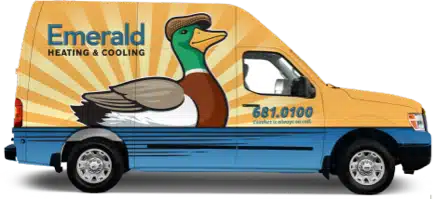Changing Your Furnace Filter FAQ Here at Emerald Heating & Cooling, we get a lot of calls with questions about furnace filters. Here’s what you need to know to keep your Depew furnace running well so you can stay warm this winter. Frequently Asked Questions Call the Trusted Depew Furnace Experts If you aren’t comfortable … [Read More]
Blog
Comfort is Always on Call!

Categories
Mold, Moisture and Your Home Mold Basics Why is mold growing in my home? Molds are part of the natural environment. Outdoors, molds play a part in nature by breaking down dead organic matter such as fallen leaves and dead trees, but indoors, mold growth should be avoided. Molds reproduce by means of tiny spores; … [Read More]
Introduction to Mold Molds produce tiny spores to reproduce. Mold spores waft through the indoor and outdoor air continually. When mold spores land on a damp spot indoors, they may begin growing and digesting whatever they are growing on in order to survive. There are molds that can grow on wood, paper, carpet, and foods. … [Read More]
Protect Your Family from Carbon Monoxide Poisoning Safety Tips Have your home heating systems (including chimneys and vents) inspected and serviced annually by a trained service technician. Never use portable generators inside homes or garages, even if doors and windows are open. Use generators outside only, far away from the home. Never bring a charcoal … [Read More]
Carbon Monoxide Questions and Answers What is carbon monoxide (CO) and how is it produced? Carbon monoxide (CO) is a deadly, colorless, odorless, poisonous gas. It is produced by the incomplete burning of various fuels, including coal, wood, charcoal, oil, kerosene, propane, and natural gas. Products and equipment powered by internal combustion engine-powered equipment such … [Read More]
Monóxido de Carbono -Preguntas y Respuestas CPSC Documento # 466S ¿Qué es el monóxido de carbono y cómo es producido en el hogar? El monóxido de carbono (CO) es un gas venenoso, sin color ni olor que es producido por quemadores de combustibles sólidos, líquidos o gaseosos que no se queman completamente. Los aparatos de … [Read More]

